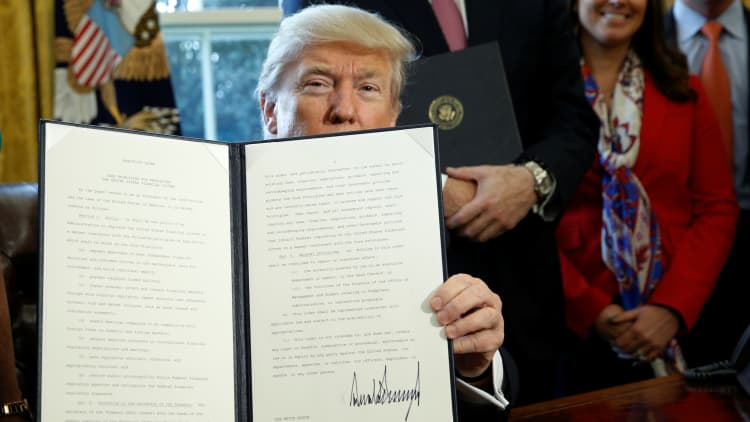
The Trump administration is working on a proposal to delay the start date of a rule that governs the way retirement advisors interact with clients, government filings show, despite a court decision this week that upheld the regulation.
The administration sent its draft proposal to the Office of Management and Budget on Thursday, according to the records. The "fiduciary rule," as it known, is currently slated to go into effect April 10.
The proposal also seeks to redefine the term "fiduciary," which generally requires advisers to put their clients' best interest first, according to public records.
The rule was one of the Labor Department's signature achievements under former President Barack Obama. It was intended to force retirement advisers to disclose conflicts of interest and eliminate hidden fees. But the measure was opposed by industry groups that argue it unfairly exposes them to litigation and limits consumers' choices.
The White House issued a presidential memo last week ordering the DOL to review the regulation, and public records show a status update was slated for March 10.
But on Wednesday, a Texas court upheld the rule and rejected a lawsuit filed by business groups that challenged the regulation. That could make it difficult for the Trump administration to make substantive changes to the rule down the road.
Debate over the rule is sowing confusion over a regulation estimated to cost the financial services industry as much as $20 billion.
The Obama administration had argued that the rule would save retirement investors about $17 billion a year in fees and lost earning potential. However, industry groups such as the Financial Services Roundtable and the Securities Industry and Financial Markets Association say the regulation effectively forces brokers to put clients in the lowest-fee products, even if a higher-cost product might be more beneficial in the long run.
A senior administration official also argued that investors are already protected under the Securities and Exchange Commission so the rule creates unnecessary and burdensome paperwork for financial advisers.

